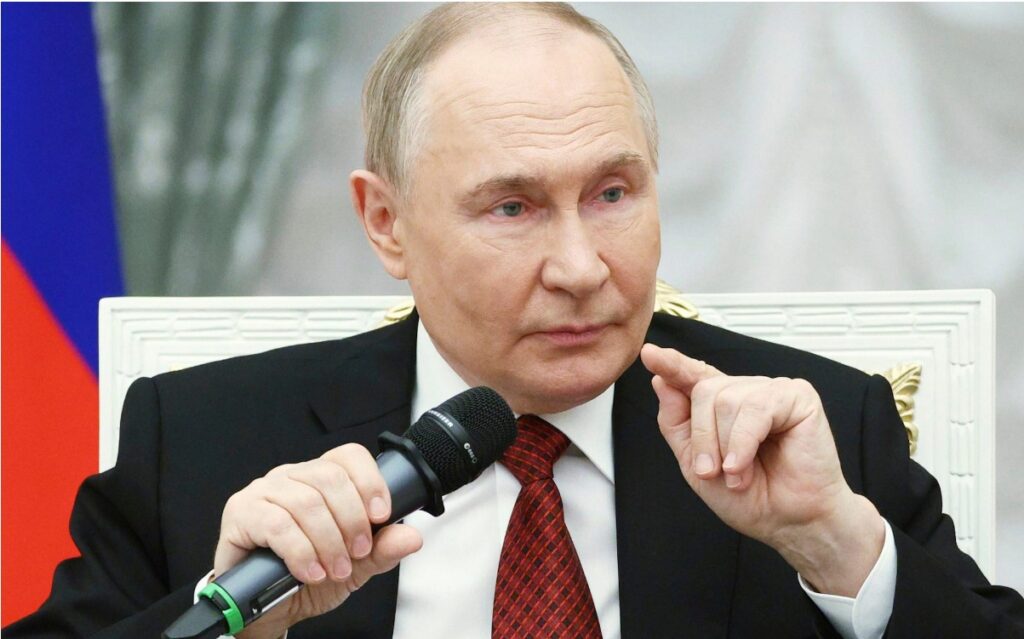Putin says he’s ready to meet Zelenskyy but cites Ukrainian president’s “illegitimacy” as obstacle

Russian President Vladimir Putin expressed willingness to meet with Ukrainian President Volodymyr Zelenskyy while simultaneously bringing up the Russian narrative of Zelenskyy’s “illegitimacy” as the president.
Putin indicated that a meeting with Zelenskyy would only occur during the final phase of peace negotiations to finalize any agreement, according to a state-funded news agency TASS.
The Russian president framed the encounter as a concluding formality rather than a substantive negotiating session, telling journalists he would meet with Zelenskyy only to “put a period” on completed talks.
The legitimacy question forms the central obstacle in Putin’s framework for potential discussions.
“From a propaganda standpoint, one can say anything about the legitimacy of the current government in Ukraine. But for us, when resolving serious issues, the legal component is what’s important,” Putin stated.
Putin argued that any peace documents must be signed by representatives he considers legitimate Ukrainian authorities, claiming that agreements signed by illegitimate officials would “end up in the trash later.”
Russia uses “Illegitimacy” narrative to undermine peace talks
Volodymyr Zelenskyy’s five-year presidential term officially ended on 20 May 2024, as he was elected in 2019. However, he continues to serve as president because Ukraine is under martial law due to the ongoing Russian invasion, which legally prohibits holding elections during this period for security reasons.
The United Nations and Ukraine’s key international allies recognize Zelenskyy as the legitimate head of state, emphasizing his democratic election in 2019.
However, questions about his legitimacy have emerged primarily from Russian propaganda efforts and have been echoed by some Western critics, including former US President Donald Trump, who have claimed his term expired and that he avoids elections to retain power.
Earlier, Trump labeled Zelenskyy as a “dictator” and blamed Ukraine for “provoking” Russia’s 2022 full-scale invasion. These claims echo Russian propaganda and have raised concerns among US allies about Trump’s stance potentially benefiting Moscow.
Meanwhile, the Institute for the Study of War assesses that the Kremlin is intensifying efforts to delegitimize the Ukrainian government as part of a broader strategy to undermine Ukraine as a negotiating partner. This campaign includes demands for “regime” change and “demilitarization”, while Moscow insists on Ukraine’s capitulation and control over extensive territories, tying any ceasefire to the lifting of Western sanctions.